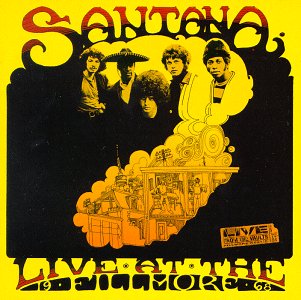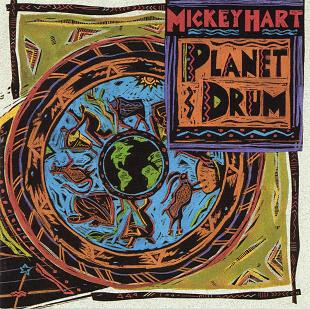
Norman Quentin Cook, also known by his stage name Fatboy Slim, is an English musician, DJ, and record producer who helped to popularise the big beat genre in the 1990s. In the 1980s, Cook was the bassist for the Hull-based indie rock band the Housemartins, who achieved a UK number-one single with their a cappella cover of "Caravan of Love". After the Housemartins split up, Cook formed the electronic band Beats International in Brighton, who produced the number-one single "Dub Be Good to Me". He then played in Freak Power, Pizzaman, and the Mighty Dub Katz with moderate success.

Michael Babatunde Olatunji was a Nigerian drummer, educator, social activist, and recording artist.

Beats International were a British dance music band and hip-hop collective, formed in the late 1980s by Norman Cook based in Brighton, East Sussex, England, after his departure from the Housemartins.

Cándido Camero Guerra, known simply as Cándido, was a Cuban conga and bongo player. He is considered a pioneer of Afro-Cuban jazz and an innovator in conga drumming. He was responsible for the embracing of the tuneable conga drum, the first to play multiple congas developing the techniques that all players use today, as well as the combination of congas, bongos, and other instruments such as the foot-operated cowbell, an attached guiro, all played by just one person. Thus he is the creator of the multiple percussion set-up.

"Praise You" is a song by British big beat musician Fatboy Slim. It was released as the third single from his second studio album, You've Come a Long Way, Baby (1998), on 4 January 1999. It reached number one on the UK Singles Chart and in Iceland, number four in Canada, number six in Ireland, and number 36 in the United States. As of 1999, it had sold over 150,000 units in the US.

Live at the Fillmore 1968 is a two-CD live album by the rock band Santana. It was recorded at the Fillmore West in San Francisco from December 19 to December 22, 1968 – eight months before their first album came out – and released in 1997.

"Radioactivity" is a song by the German electronic music band Kraftwerk. It was released in May 1976 as the only single from their fifth studio album, Radio-Activity (1975). It sold 500,000 units in France.

"Weapon of Choice" is a song by English big beat musician Fatboy Slim from his third studio album, Halfway Between the Gutter and the Stars. It features American funk musician Bootsy Collins. It was released as a double A-side single with "Star 69" on 23 April 2001, as well as a standalone single release, and a 2010 re-release with remixes. The single peaked at No. 10 on the UK Singles Chart.

Sikiru Adepoju is a Nigerian percussionist and recording artist, primarily in the genres of traditional African music and world music. He plays a variety of instruments and styles.

"Wonderful Night" is a song by English big beat musician Fatboy Slim, released as a single from his album Palookaville. It features vocalist Lateef the Truthspeaker, credited mononymously as Lateef on the single release. The song is often played at Staples Center immediately after Los Angeles Clippers home wins and at Madison Square Garden during the second half of New York Knicks games. A shortened version of the song also appears on the video game Dance Dance Revolution Extreme 2. The song was edited for radio due to the brief coarse language used in the middle of the song.

"Going Out of My Head" is a song by British big beat musician Fatboy Slim. It was released as a double A-side single with "Michael Jackson", released as the third and final single from his debut studio album Better Living Through Chemistry on 21 April 1997. The song contains prominent samples from Yvonne Elliman's "I Can't Explain" and Led Zeppelin's "The Crunge". It was featured in the films The Jackal and Like Mike.

The Essential Santana is a compilation album by Santana, released on 22 October 2002. The collection is part of a series of Essential sets released by Columbia Records.

"Body Movin'" is a song by American hip hop group Beastie Boys, released as the second single from their fifth studio album Hello Nasty.

Planet Drum is a world music album by Mickey Hart, a musician and musicologist who was a member of the rock band the Grateful Dead.

Drums of Passion is an album produced by Babatunde Olatunji, a percussionist from Nigeria, in 1960. It was the first recording to popularize African music in the West, becoming immensely successful and selling over five million copies. In 2002, it was released as a single layer stereo and 5.1 SACD by Columbia Records. In 2004 the album was added to the National Recording Registry.
Big beat is an electronic music genre that usually uses heavy breakbeats and synthesizer-generated loops and patterns – common to acid house/techno. The term has been used by the British music industry to describe music by artists such as The Prodigy, the Chemical Brothers, Fatboy Slim, the Crystal Method, Propellerheads, Basement Jaxx and Groove Armada.

The Woodstock Experience is a box consisting of a set of studio albums and live performances from the 1969 Woodstock Festival by the artists Santana, Janis Joplin, Sly and the Family Stone, Jefferson Airplane, and Johnny Winter. Each set consists of the 1969 studio album by the artist as well as each artist's entire Woodstock performance. The set was released as both a box containing all five artists, and also as individual releases separated by artist, each containing the studio album and live performance of that artist.
Anthony Francis, known by his stage name Sanga of The Valley, is a Trinidadian drummer, Babatunde Olatunji' s student, member of the Village Drums of Freedom.

Gainsbourg Percussions is the sixth studio album by French musician Serge Gainsbourg, released in 1964. Gainsbourg reinvents his style with Latin, African, and Cuban influences. It would be his last album before 1968.
















